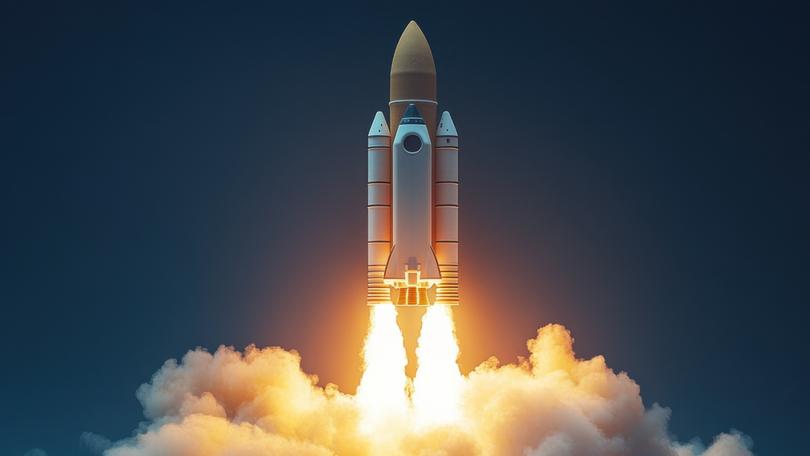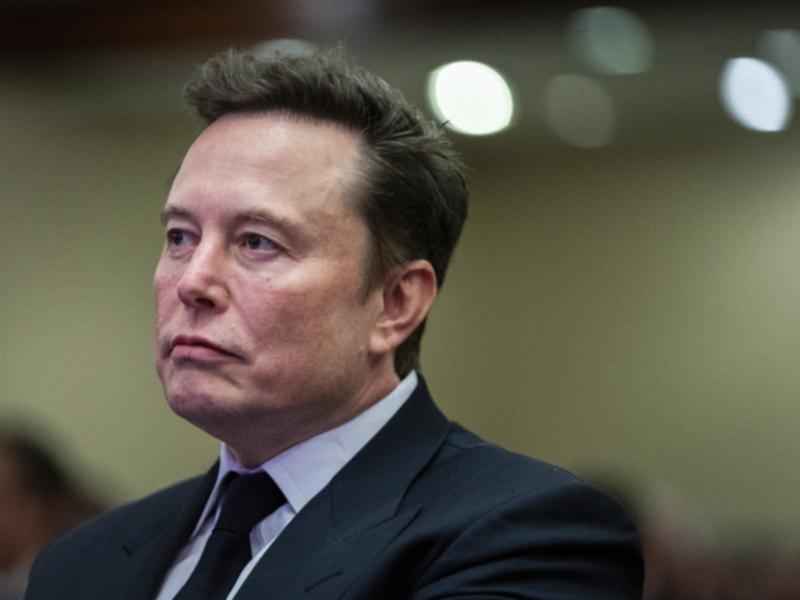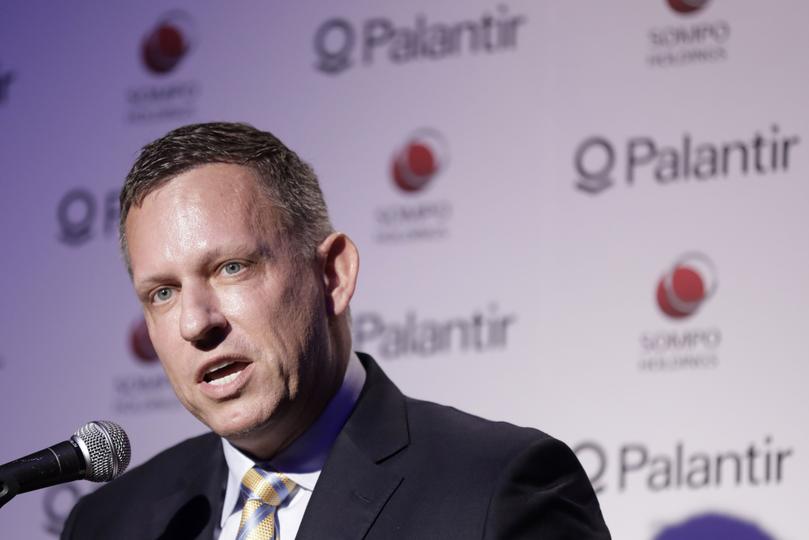JACKSON HEWETT: What the most profitable investments of 2024 say about the world we live in
As easy pickings for investors go, 2024 was a doozy, as long as you looked beyond our shores and the 7.76 per cent delivered by the Australian share market, which is below the long-term average.

As easy pickings for investors go, 2024 was a doozy, as long as you looked beyond our shores and the 7.76 per cent delivered by the Australian share market, which is below the long-term average.
The simplest trade for optimists would have been to stick your hard-earned cash into an exchange-traded fund that tracks the US S&P 500 and end the year up 27.6 per cent. Or be a bit bolder and go with the tech-heavy NASDAQ and earn 33.5 per cent.
The pessimists who thought the good times were over and shifted defensively to gold or silver would have done just as well. Gold rose 27 per cent, and silver 25.
Sign up to The Nightly's newsletters.
Get the first look at the digital newspaper, curated daily stories and breaking headlines delivered to your inbox.
By continuing you agree to our Terms and Privacy Policy.The above trades tell a story of two hemispheres. One where US exceptionalism was supercharged by its powerful technological innovation, helped by government spending, tariff protection, falling interest rates, and the prospect of a Trump bump.
The other was driven by fear in emerging countries. Fear of sanctions in the wake of the Ukraine invasion prompted record buying of gold by central banks, particularly China, which hopes to untether its currency from the powerful US dollar. Chinese consumers also purchased gold in record amounts. Falling property prices and a sagging economy pushed savers to buy the world’s oldest safe-haven asset.
Fortune favours the bold
There were huge gains to be made in 2024 and they tell us a lot about the world we are living in.
In our theoretical diversified portfolio of $10,000 invested at the start of the year, our returns are $40,433 across ten asset classes in five thematic areas.
US Consumer
Buy-now-pay-later is back baby!After a shocking 2023 where its stock fell 90 per cent to just $8.15, Sezzle sizzled in 2024, hitting a high of $US475. Although those gains have ebbed, the stock is still up 1,138 per cent for the year. Australian BNPL provider Zip also joined the action, rising 382 per cent thanks to its US footprint.
Two factors drove the revival in BNPL. First, providers cleaned up their processes following the boom of 2020/21. More importantly, falling interest rates gave the sector a much-needed boost. BNPL offerings work best when the cost of money is low, and the US Federal Reserve’s rate cuts improved conditions significantly.
The big question now is whether the US consumer—famous for their capacity to spend, even recklessly—is confident or overconfident. Arrears remain low, supported by strong wages and employment. However, consumer credit defaults were the catalyst for the Global Financial Crisis, and fast BNPL adoption could signal that US consumers are getting ahead of themselves.
Space, the financial frontier
In February this year, Texas-based Intuitive Machines became the first commercial company to land on the moon with its Nova-C Lander. Its shares soared, gaining 679 per cent for the year. The company provides “lunar surface access for transportation and payload delivery” and holds three NASA contracts to support lunar exploration.
Rocket Lab, another NASA supplier, conducted its 16th launch of 2024 from its base on the east coast of New Zealand’s North Island on December 22. According to its website, the company is the second most frequently launched U.S. rocket provider annually, having delivered more than 200 satellites to orbit for both private and public sectors. Its shares are up 412 per cent for the year.
Space is rapidly becoming big business. McKinsey estimates the global space economy will be worth $US1.3 trillion within the next decade as companies increasingly rely on satellite connectivity, adopt positioning and navigation services for mobile devices, and use artificial intelligence to analyse image data.
With Elon Musk in the White House, further outsourcing of NASA’s space activities seems likely. Musk’s obsession with colonising Mars prompted him to establish SpaceX in 2002, which has since become the largest commercial provider of launch technology, completing more than 130 missions this year. The company was recently valued at $US350 billion following an employee share buyback.

The Trump Trade
Speaking of Musk, his relationship with Donald Trump continues to be lucrative, with his car company Tesla enjoying a 73 per cent gain in 2024. Almost all of that gain came after Trump’s electoral success was assured. Tesla is now worth more than the next 20 carmakers combined, even though it accounts for only about two per cent of the total global market. There is no doubt that the trend toward electric vehicles has been disastrous for most of the world’s major car brands—with the exception of China—but Tesla’s share price is far ahead of where its sales can realistically reach. Investors are banking on Musk convincing Trump to loosen autonomous driving regulations.
The other significant Trump trade involved a bet on Vice President JD Vance and another member of the PayPal Mafia, Peter Thiel. Musk and Thiel cashed in their stakes in PayPal for millions when the company was sold to eBay in 2002, and Thiel parlayed his stake into billions through investments in companies like Facebook, Airbnb, and Spotify.

Thiel hired JD Vance to work for his venture capital firm, backed Vance’s private equity company with $US100 million (along with other investors), and donated $15 million to his 2022 Senate race.
Like Trump, the support has paid off. Thiel’s AI-driven data company, Palantir, has soared 450 per cent this year. The firm builds and deploys software for intelligence agencies to conduct counter-intelligence operations. Palantir is now in talks to bid for US government contracts.
Another quick win from Trump’s election would have been to invest in Donald Trump Media, the owner of Truth Social. That stock is up 100 per cent for the year.
Crypto Inferno
In the “this is no surprise to anyone” file, cryptocurrencies were the BBQ stopper of 2024 as Bitcoin surged past $US100,000. Every crypto devotee is crowing about the benefits of ‘digital gold,’ and while I remain unconvinced about what digital currencies can achieve that a digital dollar cannot, I am, unfortunately, much the poorer.
Had I bought Bitcoin this year, I would be up 131 per cent; if I had bought XRP, another cryptocurrency, I would be up 266 per cent. Bitcoin’s value, theoretically, lies in its finite supply, making it an alternative to the excessive money printing by central banks. Its value is akin to gold in that it could serve as a safe haven in the event of a collapse of fiat currencies as government debt becomes increasingly unsustainable.
XRP is designed for fast and energy-efficient global payments, and an announcement by its parent company that it would launch a stablecoin pegged to the US dollar gave it a significant boost. Digital payments are expected to continue growing in volume as consumers transact globally with ease and, perhaps more importantly, as microtransactions powered by artificial intelligence occur automatically.
Trump’s election has sent most cryptocurrencies skyward, and with Musk soon to be pacing the White House corridors, his preferred currency, Dogecoin, is up 276 per cent.
Unlike the previous cryptocurrency bull market, institutional investors are now getting more involved, which provides greater support—for now.
For those who prefer not to pick an individual coin, another major trade of the year was US-listed crypto investor MicroStrategy, which sells shares to buy Bitcoin. Its share price is up 381 per cent for the year, and the company plans to raise $US42 billion over the next three years as it capitalises on the mania.
Argentina goes ‘El Loco’
Shock therapy under the chainsaw-wielding, hard rocking neo-liberal president Javier Milei seems to be working for the perennially struggling Argentina.
After decades of International Monetary Fund bailouts, Argentina has a new lease on life after Milei’s radical fiscal austerity and threats to dollarise the economy and even close the central bank have shaken the country out of its two party torpor.

The share market has responded, up nearly threefold since the start of the year. Financial firms in the country have performed even better.
Buying the country’s debt was also a good trade. Argentinian bonds have delivered a 100 per cent return this year as inflation fell and pushed interest rates down and bond prices up.
While it was a good year for investors in Argentina, it is not a given it will continue. Despite the shock therapy, plenty of structural issues remain and big debt payments are due next year and in 2026.
The big picture
If there is one big theme of 2024 it would have to be the rise of the libertarian. Now deeply ensconced in the White House, there is a cadre of thinkers who believe in low taxes, small government and eliminating regulation.
As luck would have it, they also own companies who are reliant on either government contracts, or reduced regulation.
Javier Milei is the poster child of that world view, described as an anarcho-capitalist who believes the free market should provide the majority of services while the government’s role is the protection of property rights and the provision of defence.
The earliest founders of cryptocurrencies also envisioned a world where government control would eventually be superseded by a transparent publicly-owned currency platform.
All investing is a bet on the future and speculative investors are more interested in the return, not the philosophy. But philosophically behind these big trades, including space investments, paint a picture of a world powered by digital technologies that advocates for minimal government at the individual level and a defence-orientation at the national level.
Monitoring and defending property rights from space, using AI-analysed digital data seems to be where the world is heading if Musk and Thiel’s visions come to fruition. Like that idea or not, they now have the capital to move further in that direction.
In the meantime, the consumer has his own vision. Seeking short-term material gain whether they can pay for it or not.

